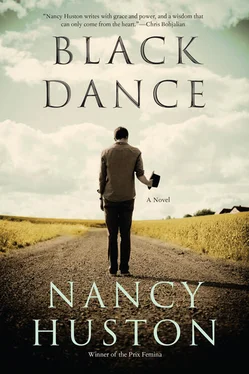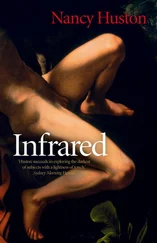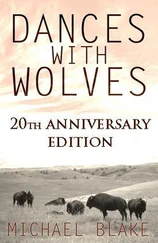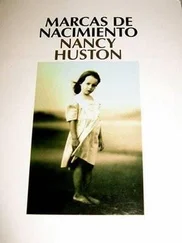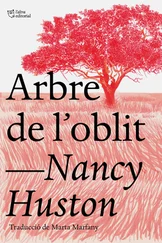Milo and Roxanne quarreling in the kitchen — Roxanne throws a cup at Milo; it grazes his forehead and smashes against the wall; he leaves the house. Fed up with promises of employment and prosperity, whereas we’ll always be the eager servants and bootlickers of the big shots. . Civil liberties are suspended. Huge demonstrations are held. Ta, ta-da DA, ta, ta-da DA. . People are beaten, kicked and dragged by the police; blood runs down their faces. Five hundred well-known artists, writers, organizers and militants are arrested and thrown in jail.
Milo watching TV, a six-pack of Molson and a carton of Player’s at his side. . As long as there are Westmounts, Mount Royals, Hampsteads and Outremonts, those impregnable fortresses of Saint Jacques Street and Wall Street high finance, we Quebeckers will resort to any means necessary, including dynamite and guns, to kick out the big bosses of economy and politics, knowing they will stop at nothing to screw us over. . Pierre Laporte’s dead body is found in the trunk of a car, a chain around its neck. Ta, ta-da DA, ta, ta-da DA. .
Silence. CUT.
Milo in bed. The Black Hole has got him.
Roxanne (wearing different clothes, to show that days are passing) bends over him solicitously: “What’s the matter, my love?”. .
“Are you going to get up today?”. . “You haven’t left the house in more than a week.”. . “What’s the matter, my love?”. . “Did something happen?”. . “Did something happen, Milo? Are you depressed?”. . “Do you want me to call a doctor?”
Turning away from her, Milo pulls the blankets up over his head and feigns sleep. Sleep is still and always a problem for him. (Even today, my love, even today. .)
The telephone rings. He sits bolt upright in bed and yells.
Roxanne rushes into the bedroom: “What’s the matter? Jesus Christ. . You scared the shit out of me.”
She bursts into tears. Milo holds out his arms to her in hopes that she will comfort him.
“It’s okay,” they whisper to each other. “We’ll be all right.”
“I just made some tea,” says Roxanne. “Do you want a cup?”
Milo nods. Slowly gets out of bed and hobbles into the kitchen. Can’t look at Roxanne. Sits down at the table. Pours salt instead of sugar into his tea.
“Milo!”
They look at each other. . then avert their eyes, each embarrassed to see the other knows they know that it is not okay. They will not be all right. No, not at all. .
I’VE SEEN YOU that way, Astuto. I’ve seen you sink into lots of black holes over the years and lose lots of stuff in their depths — and when I say stuff, I mean fairly important stuff. Language. Your name. . your profession. . your age. . your wallet. . your computer. . track of time. Yeah, I’ve seen you vanish, man. Turn into a void before my fuckin’ eyes — and a lasting void, at that! No way anyone can kiss you then. Nothing anyone can do but let you stare at the wall for as long as it takes you to snap out of it. It’s pretty impressive. You succumb utterly to your malaise. Surrender all arms. Relinquish language and revert to pure, animal survival. Say nothing, see no one, stay home, stare at the wall. A triumph of inertia. A splendor of blackness. All your energy condensed into an invisible point in the depths of you, one that takes up no space but freezes everything around it. It feels like turning to ice, I remember your telling me once. Yeah, like Glacier — the white giant of Indian legend who invaded the northern lands in prehistory, shaping hills, polishing stones, slowly displacing millions of tons of rocks and gravel, covering all, paralyzing all for thousands of years. But ice is nice, you added. Can’t do much wit water. Ice, you can sculpt.
I don’t know how many times I saw you endure these crises of inexistence. Far from improving as you grew older, they grew worse — because you’d earned your stripes as a screenwriter; people knew you were brilliant and they expected you to perform. All of a sudden, strangled by anxiety, you’d find yourself unable to write. You’d miss deadlines and appointments, break promises and contracts, fall behind on obligations. Money would stop coming in, unpaid bills would pile up, bankers and tax inspectors would start harassing you. You would unplug your phone and stop checking your mailbox — no one could get in touch with you. And of course, the worse it got, the worse it got. The idea of their mounting resentment would make you cringe with shame, so you’d crawl further still into your hole.
At last, after weeks or even months of hibernation, something would move and it would be over. In one fell swoop, your light would be and your strength would come rushing back a hundred-fold. You’d write feverishly, day and night, pouring your innermost being onto the page. . And people would forgive you every time, because what you wrote in those phases was just, unassailably, excellent.
I’ve always loved you, Milo, neither despite nor because of your black holes. With them. .
SUCH, HOWEVER, WAS not the case with Roxanne. After two years of riding your soul’s roller coaster with you, hanging on for dear life, she got fed up and kicked you out. Bequeathed you her black hat and left you to your black holes. You were twenty-one, with a college diploma and not a red cent to your name. .
There was only one place in the world you could head: New York City.
Odd jobs: waiter, taxi driver, fishmonger, lighting technician, nurse’s aid. . You take up boxing for a while, discover you have a gift for the sport, start making good money at it and even consider going professional. . but one day you’re fighting this humongous black man and you knock him out. Looking at him lying motionless on the floor, you realize this sport could kill you, so you hang up your gloves: your mother wouldn’t want you to meet so pointless an end.
Riffling through the Times one evening in a Dunkin’ Donuts on Seventh Avenue (in 1974 if I’m not mistaken), you’re brought up short by a headline — Seán MacBride, cofounder of Amnesty International, has just received the Nobel Peace Prize. The name rings a bell. MacBride. . MacBride. . You close your eyes and your grandfather’s voice comes arcing back to you over the thousand miles and days: Poor Mrs. MacBride was reduced to following Irish news from abroad. . for fear that, were she to leave France, she’d lose legal custody of young Seagan.
Seán and Seagan: homo homo? Yes, Milo. Same man. His mother, Maud Gonne, had fought her whole life long for the rights and the release of political prisoners, she’d even founded an association called Amnesty — and now, by God, her little boy had gone and won the fucking Nobel! You’ll drink to that! Hightailing it out of Dunkin’ Donuts, you head for an Irish pub you’re partial to on Forty-Second Street — and, in loving memory of your grandpa Neil, dead these five years, down half a dozen pints of Guinness, that near-black beer topped by a stripe of creamy foam. .
FADE TO WHITE.
• • • • •
Neil, 1920–1923
SOUND TRACK of live music: Québécois songs accompanied by fiddle and accordion.
(We’ll need to get a researcher working on this, Milo; I’ll bet you’ve got no idea what songs would have been sung at sugaring-off parties in the 1920s, am I wrong?)
The large barn space, next to the shed in which Neil was trying to write about exile when his ephemeral son Thom was born, has been temporarily converted into a dining/dancing hall. Long tables have been set up. Squeezed together on benches, several dozen men, women and children wolf down heaping platefuls of fried potatoes, fried sausages, hotcakes, tomatoes and toast, all drenched in maple syrup. Behind them, others dance, stomp and clap in time to the tunes stirred up by the little orchestra.
Читать дальше
